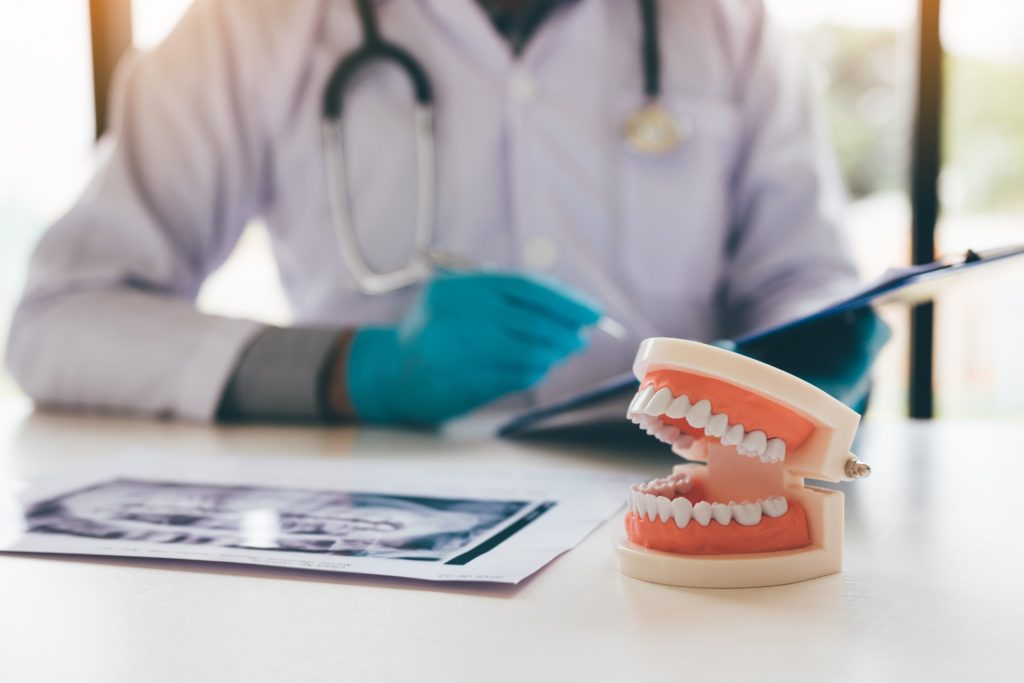Your smile is a powerful asset, and taking care of it is essential not only for your oral health but also for your overall well-being. Dental problems can be painful, inconvenient, and costly to treat, making prevention the best approach. In this comprehensive guide, we’ll discuss some of the most common dental problems people face and provide valuable insights on how to prevent them. From practising good oral hygiene to making lifestyle changes, you can take proactive steps to maintain a healthy, radiant smile.
Understanding Common Dental Problems
Before diving into prevention strategies, let’s familiarise ourselves with the dental problems that many individuals encounter:
- Tooth Decay (Cavities): Tooth decay occurs when bacteria in the mouth produce acids that erode the enamel, leading to cavities. Symptoms include toothache, sensitivity, and visible holes in the teeth.
- Gum Disease (Periodontitis): Gum disease is an inflammation of the gums that can progress to affect the bone supporting the teeth. Warning signs include red, swollen gums, bleeding while brushing, and bad breath.
- Tooth Sensitivity: Sensitive teeth react to temperature, sweets, or touch. It often results from exposed dentin, the layer beneath the enamel.
- Bad Breath (Halitosis): Persistent bad breath can stem from various causes, including poor oral hygiene, gum disease, or certain medical conditions.
- Tooth Erosion: Acidic foods and beverages, as well as stomach acid from conditions like acid reflux, can lead to tooth erosion, causing enamel to wear away gradually.
- Toothaches: Toothaches can result from various issues, such as cavities, gum infections, or impacted wisdom teeth.
- Oral Cancer: Oral cancer can manifest as sores, lumps, or white or red patches in the mouth. Early detection is crucial for successful treatment.
Preventing Common Dental Problems
Now that you’re acquainted with these common dental problems, let’s explore effective ways to prevent them and maintain a healthy smile.
Practise Excellent Oral Hygiene
- Brush Regularly: Brush your teeth at least twice a day using fluoride toothpaste and a soft-bristle toothbrush. Ensure you brush for two minutes to thoroughly remove plaque and food particles.
- Floss Daily: Daily flossing helps remove debris from between teeth and along the gumline, where your toothbrush may not reach.
- Use Mouthwash: Rinsing with an antimicrobial mouthwash can reduce bacteria in your mouth and freshen your breath.

Maintain a Balanced Diet
- Limit Sugary and Acidic Foods: Sugary and acidic foods can promote tooth decay and erosion. Consume them in moderation and rinse your mouth with water afterward.
- Eat Tooth-Friendly Foods: Incorporate foods rich in calcium, such as dairy products, leafy greens, and almonds, to strengthen tooth enamel.
Stay Hydrated
Drinking water is not only essential for overall health but also plays a crucial role in maintaining optimal oral hygiene. When you hydrate your body with water, you’re also giving your mouth a natural defence mechanism against dental problems.
Water acts as a natural cleanser, rinsing away food particles and bacteria that can accumulate in your mouth throughout the day. These tiny invaders often find hiding spots between teeth and along the gumline, areas where your toothbrush may not reach effectively. By drinking plenty of water, you help dislodge and flush out these culprits, reducing the risk of cavities and bad breath.
Moreover, water helps to maintain the ideal moisture balance in your mouth. A well-hydrated mouth encourages the production of saliva, which contains enzymes that aid in digestion and help neutralise acids produced by harmful bacteria. This natural defence system helps protect your teeth from the corrosive effects of acidic foods and beverages.
Quit Smoking and Tobacco Use
It’s no secret that smoking and the use of tobacco products pose significant threats to your oral health, but the ramifications extend far beyond just your mouth. Taking the step to quit is not only a gift to your smile but to your entire well-being.
Smoking and tobacco use are notorious for elevating the risk of gum disease, a condition that can lead to painful gum recession, tooth loss, and even damage to the underlying bone structure. These products also play a prominent role in the development of oral cancer, which, when detected late, can have dire consequences. Quitting tobacco is an essential measure in reducing these serious risks.
Furthermore, it’s worth noting that tobacco use is a common contributor to bad breath. The chemicals in cigarettes and other tobacco products can linger in your mouth, leaving an unpleasant odour that affects not only your self-confidence but also how others perceive you.
Limit Alcohol Consumption:
Excessive alcohol consumption can contribute to gum disease and oral cancer. Drink in moderation, and remember to stay hydrated with water.
Wear a Mouthguard:
If you play contact sports or grind your teeth at night (bruxism), wearing a mouthguard can protect your teeth from injury and erosion.
Regular Dental Check-ups:
Don’t skip your dental appointments. Regular check-ups allow your dentist to detect and address issues early, preventing them from becoming more serious and costly to treat.
Address Dental Anxiety:
If fear or anxiety prevents you from visiting the dentist, consider discussing your concerns with your dental provider. They can offer options to make your visits more comfortable.
Manage Medical Conditions:
Conditions like diabetes and acid reflux can impact your oral health. Work closely with your healthcare providers to manage these conditions effectively.
Practice Stress Management:
High stress levels can contribute to teeth grinding and other oral health issues. Explore stress reduction techniques such as meditation, yoga, or deep breathing exercises.
Maintaining a healthy smile is within your reach by following these preventive measures. Remember that consistency is key; daily oral care and regular dental check-ups are your best allies in the fight against common dental problems. By prioritising your oral health, you not only preserve your radiant smile but also contribute to your overall well-being. Don’t wait for dental problems to develop—start preventing them today and enjoy a lifetime of healthy teeth and gums.

